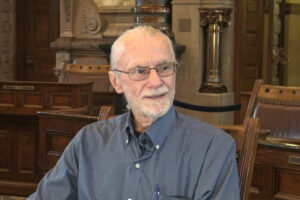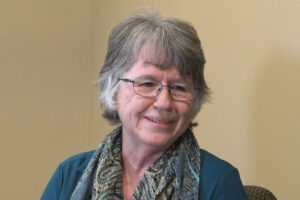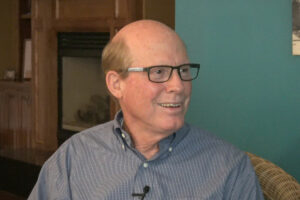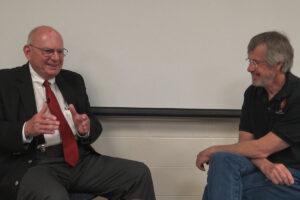Topic: Kansas Court of Appeals

Interview of Robert (Bob) Frey, August 2, 2019
Interviewed by Jim McLean
Robert Frey had considerable impact on the legal system after he arrived in 1975. Court unification had passed as a constitutional amendment; now the legislature had to implement it. Early in his legislative career Frey took on some controversial issues, such as the hearings he held in the House Judiciary committee on the Posse Comitatus to ban paramilitary training and legislation ensuring every county had a judge. This interview does not deal with the plethora of issues which originated in the House Judiciary committee under Frey's leadership, such as codification of the sexual crimes including marital rape, Show Morebut it does reveal his philosophy about the law, the courts and judges. The interview also provides a glimpse into the rise of the conservative influence from a group know as "the Cowboys." The interview concludes with a discussion of activities on the Board of Tax Appeals. Show Less

Interview of Mary Fund, February 10, 2020
Interviewed by Rex Buchanan
In her 2020 oral history interview, Mary Fund talked about her involvement in water policy from the perspective of her work at the Kansas Rural Center (KRC) since the late 1970s. Fund authored Water in Kansas, A Primer, published in 1984 by the KRC. In this interview, she talked about the difficulty of making changes in farming methods that will conserve both water and soil when those changes require farmers to voluntarily alter decades of entrenched farming practice. Fund also observed that shifting the political culture is key to making voluntary changes work.

Interview of Ken Grotewiel, December 5, 2019
Interviewed by Rex Buchanan
In this 2019 oral history interview, former Representative Ken Grotewiel recalls learning about the state and its urban/rural divide in addressing water issues. He found that these issues were not generally decided on a partisan basis. While representing Wichita in the Kansas House of Representatives, Grotewiel developed a good working relationship with Carl Dean Holmes, a Republican House member from western Kansas, especially on water issues, when they served together on the House Energy and Natural Resources Committee. Although Grotewiel had a reputation as a liberal environmentalist, he views his approach as that of a pragmatist. Among the Show Morewater issues addressed during his service in the House were purchasing storage in federal reservoirs that involved “minimum desirable stream flows,” irrigation, “water rights” that can affect streams, and the interbasin transfer of water. Grotewiel describes in some detail the challenges of passing legislation to fund the State Water Plan; legislation strongly opposed by farm groups and irrigators. He sites approval of water plan funding as an example of bipartisan cooperation and as the most significant accomplishment during his time in the Legislature. By the time he was appointed by Governor Sebelius to be Assistant Director of the Kansas Water Office in 2002, he noted considerable breakdown of civility in the Legislature. Among issues Grotewiel worked on during his service in the Water Office were use of federal money to purchase water rights along the Arkansas River and the purchase of land to protect the Equus Beds aquifer along with resisting the Legislature's diversion of Water Plan moneys for other purposes. Show Less

Interview of Joe Harkins, April 24, 2019
Interviewed by Rex Buchanan
In 2019 Joe Harkins sat down for an oral history interview conducted by Rex Buchanan. Harkins describes a career that began in public health and ranged from addressing nursing home problems in Kansas to initiating a graduate program in health administration. Persuaded to take on running the Kansas Water Office, Harkins engaged in transforming the culture of water administration at a time when issues related to water had a high priority in the state. In a detailed discussion of water policy, he discussed the dynamics of the relationship between governors and the legislature in developing, adopting, and funding Show Morea state water plan in the 1980s and early 1990s. Harkins brings the perspective of a professional public administrator to the issue of water policy development. He recalls learning about water policy while he was in charge of developing it. Harkins also has the perspective of a key staff member in several administrations in which water policy was a high priority. He reflects on the importance of gubernatorial leadership and the power dynamics among the various interests that shaped the ultimate policy. Harkins laments that water issues are no longer among the highest priorities in state public policy administration. This interview provides the most comprehensive explanations of policy development in practice in Kansas state government that is available.
Highlights -- short excerpts from the interview
